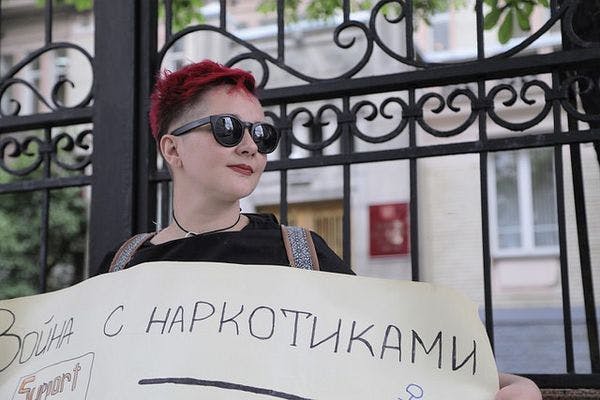Experts: Stereotypes and fear continue to block access to health care for some
Dr Luiz Loures, Deputy Executive Director of UNAIDS, fully admits that he is not an expert on human rights.
He is a medical doctor with decades of experience, but he has seen how ignorance and stigma can prevent access to health care.
Loures was a doctor early on in the HIV epidemic. During that time, Loures dealt first hand with the stigma and fear associated with HIV. He often would work 18-hour shifts in hospital, as his colleagues were too afraid to assist with his HIV patients. And patients were diagnosed late, if at all, because of the fear of being labelled with the disease.
Things have changed in the 30 years since the HIV crisis first began, he said, but discrimination against people with HIV because of stereotypes and other stigma are still a barrier to accessing health care.
“What I see in terms of stigma …it seems like we are stuck in the 80s,” Loures said. “And it is clear today that this stigma is killing (people), and bringing a new crisis (in health care) to us.”
[...]
For the community that Brun Gonzalez works with, stigma and stereotypes are often underpinned by laws. Gonzalez is the chair of the International Network of People who Use Drugs and drug users are a group pilloried because of the criminalization of drugs and their associated negative impacts.
“Then people who are health service providers have this frame work where they see people who use drugs as delinquents, who strain their services, are linked to organized crimes, who are twisted, altered, sick people who have no morals, no values what so ever,” Gonzalez said. “So they don’t want to engage them, they don’t want to provide services, they don’t want to use needles around them to give them medicines.”
But there is hope and that hope comes through human rights, said UN High Commissioner for Human Rights Zeid Ra’ad Al Hussein. Substantial evidence shows that in every context, health policies and programmes based on human rights deliver better health outcomes, he said in his address to the Forum.
“We know what needs doing and why it should be done, and we know too that it makes financial sense,” he said. “Epidemics and pandemics demonstrate that everyone's health is interconnected – not only in the literal sense of contagion, but also in terms of economic and social impact. An extensive and nuanced body of international and national law elaborates the scope of the right to health. Access to health-care of quality is not a privilege for the wealthy few, but a universal right – and where this right is prioritised, everyone benefits.”
Click here to read the full article.
Thumbnail: Support Don't Punish Campaign, Global Day of Action 2017 (Russia)
Regions
Related Profiles
- Joint United Nations Programme on HIV and AIDS (UNAIDS)
- International Network of People Who Use Drugs (INPUD)
